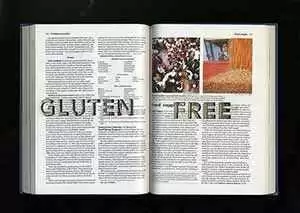Celiac.com 02/15/2013 - If you think the FDA has dropped the ball on gluten-free food labeling, you are not alone.
 In 2004, the Food Allergen Labeling and Consumer Protection Act (FALCP) gave the FDA four years to create and implement final rules for gluten-free food labeling.
In 2004, the Food Allergen Labeling and Consumer Protection Act (FALCP) gave the FDA four years to create and implement final rules for gluten-free food labeling.
Celiac.com Sponsor (A12):
The FALCP requires manufacturers to identify these allergens by their common names (i.e. wheat, milk, or soy) on labels so that consumers can easily identify them.
In 2007, the FDA followed FALCP's mandate by issuing a proposed rule "Food Labeling: Gluten-Free Labeling of Foods." The proposed rule states that a food is gluten-free if the food does not contain any of the following:
- an ingredient that is any type of wheat, rye, barley, or crossbreeds of these grains;
- an ingredient derived from these grains and that has not been processed to remove gluten;
- an ingredient derived from these grains and that has been processed to remove gluten, if it results in the food containing 20 or more parts per million (ppm) gluten; or
- 20 ppm or more gluten. -- "Food Labeling; Gluten-Free Labeling of Foods," 72 Fed. Reg. 2795 (proposed January 23, 2007) (to be codified at 21 CFR Part 101).
The FDA's proposed rule was based on the fact that currently-adopted analytical methods can reliably detect gluten at or above 20 parts per million in most foods. Also, under that rule, food manufacturers looking to market products as 'gluten-free' would voluntarily test those products prior to labeling.
However, the FDA allowed the comment period for the proposed rule to pass with no action, and issued no final rule for gluten-free labeling.
In 2011, the FDA announced a second comment period for their proposed rule, but that comment period also closed with the FDA taking no action.
A full year and a half later, on Dec. 14, 2012, the FDA issued a new proposed rule titled "Request for Comments and Information on Initiating a Risk Assessment for Establishing Food Allergen Thresholds; Establishment of a Docket."
They opened comment period on this proposed rule until Feb. 12, 2013, and scheduled an advisory committee meeting of the FDA for March 7, 2013 from 8 a.m. to 5 p.m.
It has been eight years, since FALCP mandated the FDA to devise standards for gluten-free labeling, and five years since the legal deadline for final gluten-free rule, and the FDA has yet to accurately define the term "major food allergen," establish safe gluten thresholds for food products, and meet its statutory mandate to create and implement final rules for gluten-free food labeling.
Until the FDA formally adopts a final rule for gluten-free labeling, there is no legal definition for what makes food "gluten-free" in the United States, and people with celiac disease will no clear assurance that when a product claims to be gluten-free, it is safe to consume.
Please go to the Federal Register and comment on the FDA's latest ofrmulation of their rule (Open Original Shared Link) regarding gluten-food.






Recommended Comments